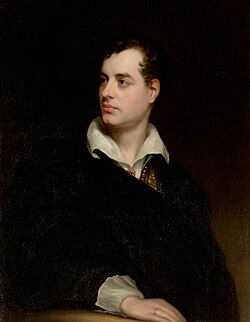George Gordon Byron Quote
It is not in the storm or in the strifeWe feel benumbed and wish to be nor more,But in the after-silence on the shoreWhen all is lost except a little life.
George Gordon Byron
It is not in the storm or in the strifeWe feel benumbed and wish to be nor more,But in the after-silence on the shoreWhen all is lost except a little life.
Tags:
despair
Related Quotes
It is for your own good to love a dare-devil rather than a holy coward. A dare-devil is a unique devil, battling your fears, your pains, conquering your uncertainties, carrying you his arms, and flyin...
Michael Bassey Johnson
Tags:
battle, conqueror, corrosive, cowardice, dare devil, despair, dread, dreadful, equanimity, fear
Somewhere, somehow, maybe I can find someone who can make my heart beat again.. For everyday that I pine for your love, and for every single time you reject me, I start to die deep inside.. That throb...
Laarni Venus Marie
Tags:
affection, bitterness, darren, despair, distance, frustration, heartache, hopelessness, love, loving him
We have created a manic world nauseous with the pursuit of material wealth. Many also bear their cross of imagined deprivation, while their fellow human beings remain paralyzed by real poverty. We dro...
Anthon St. Maarten
Tags:
buying, consumer culture, consumerism, consumption, deprivation, desert, despair, emptiness, excess, happiness
About George Gordon Byron
George Gordon Byron, 6th Baron Byron (22 January 1788 – 19 April 1824), was an English poet. He is one of the major figures of the Romantic movement, and is regarded as being among the greatest British poets. Among his best-known works are the lengthy narratives Don Juan and Childe Harold's Pilgrimage; many of his shorter lyrics in Hebrew Melodies also became popular.
Byron was educated at Trinity College, Cambridge, before he travelled extensively in Europe. He lived for seven years in Italy, in Venice, Ravenna, Pisa and Genoa after he was forced to flee England due to threats of lynching. During his stay in Italy, he would frequently visit his friend and fellow poet Percy Bysshe Shelley. Later in life, Byron joined the Greek War of Independence to fight the Ottoman Empire, for which Greeks revere him as a folk hero. He died leading a campaign in 1824, at the age of 36, from a fever contracted after the first and second sieges of Missolonghi.
His one legitimate child, Ada Lovelace, was a founding figure in the field of computer programming.
Byron was educated at Trinity College, Cambridge, before he travelled extensively in Europe. He lived for seven years in Italy, in Venice, Ravenna, Pisa and Genoa after he was forced to flee England due to threats of lynching. During his stay in Italy, he would frequently visit his friend and fellow poet Percy Bysshe Shelley. Later in life, Byron joined the Greek War of Independence to fight the Ottoman Empire, for which Greeks revere him as a folk hero. He died leading a campaign in 1824, at the age of 36, from a fever contracted after the first and second sieges of Missolonghi.
His one legitimate child, Ada Lovelace, was a founding figure in the field of computer programming.
